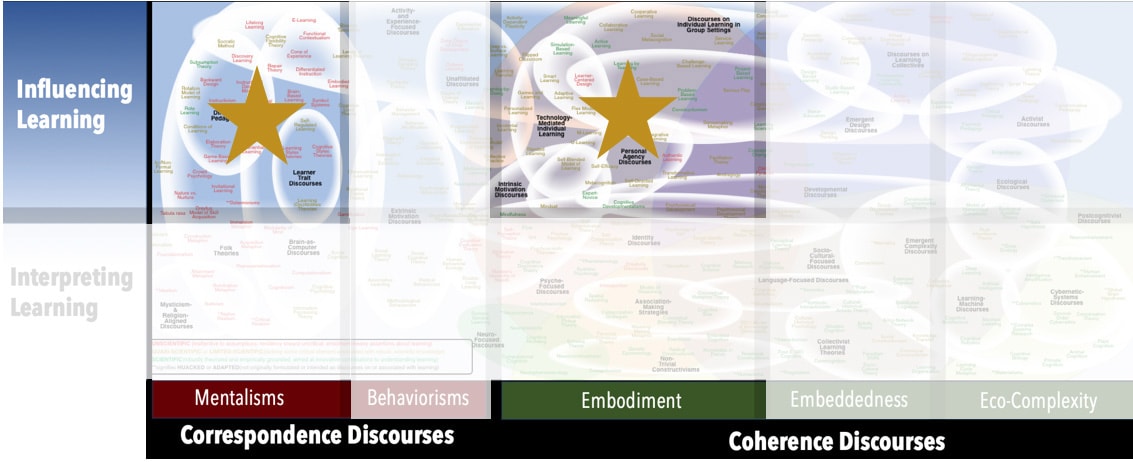AKA
Self-Blend Model of Learning
Focus
Self-directed use of digital tools to supplement school-based learningPrincipal Metaphors
The Self-Blended Model of Learning is not explicit about or aligned with any particular theory of learning – and, consequently, vocabulary used to characterize learning is not consistent. Most often, references and are suggestive of Folk Theories, specifically the Acquisition Metaphor. The following are typical:- Knowledge is … material; objectified knowledge
- Knowing is … mastered material
- Learner is … an accumulator (individual)
- Learning is … acquiring
- Teaching is … N/A
Originated
2010sSynopsis
The Self-Blended Model of Learning involves both face-to-face and on-screen courses, affording learners some autonomy to supplement in-school learning. Reasons for such supplementation vary, including accessing courses that are not offered in schools, enrichment, and general interest.Commentary
There are few direct criticisms of the Self-Blended Model of Learning, but there are frequent concerns voiced about the conditions that might contribute to its necessity – such as dominant modes of pedagogy, inadequate resourcing of schools, and curricula that have not kept pace with societal evolutions.Authors and/or Prominent Influences
DiffuseStatus as a Theory of Learning
The Self-Blended Model of Learning is not a theory of learning.Status as a Theory of Teaching
The Self-Blended Model of Learning is a perspective on influencing learning, but it is not developed in a way that justifies labeling it a theory of teaching.Status as a Scientific Theory
Through research associated with some of its near relatives, the Self-Blended Model of Learning can be said to be supported by some empirical evidence. However, its proponents do not appear to be at all attentive to the metaphors and other theoretical commitments that drive the discourse. As such, it cannot be described as a scientific theory.Map Location

Please cite this article as:
Davis, B., & Francis, K. (2019). “Self-Blended Model of Learning” in Discourses on Learning in Education. https://learningdiscourses.com.
⇦ Back to Map
⇦ Back to List
